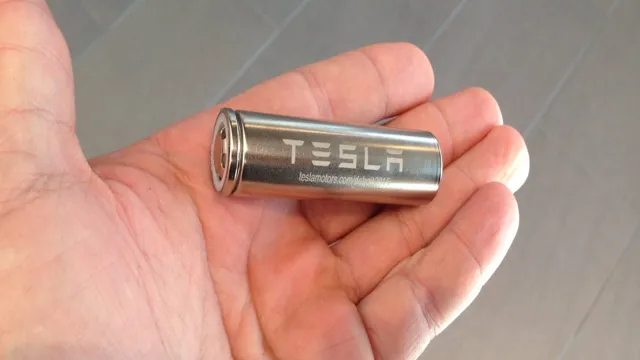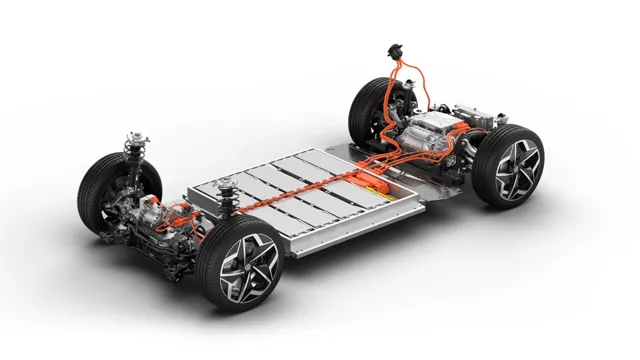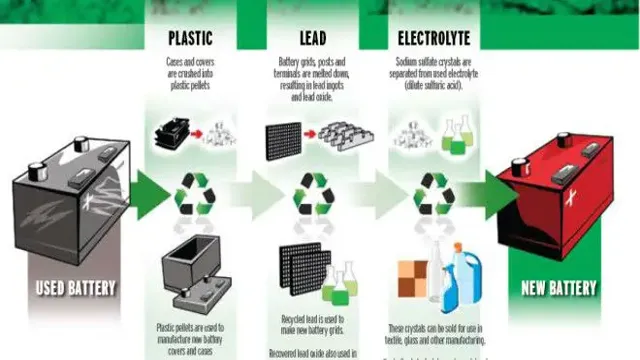The Dark Side of Green Energy: The Tragic Link Between Electric Car Batteries and Child Labor in Cobalt Mines
Have you ever thought about the human cost of your electric car battery? While they’re well-known for being more environmentally friendly than traditional vehicles, the creation of electric car batteries involves a darker side that’s only recently come to light. Child labor is a severe problem in the mining industry, especially in countries like Congo, where a significant portion of the world’s cobalt is sourced. Cobalt is an essential component of electric car batteries, and many manufacturers can’t meet the growing demand for it.
The result? The exploitation of children and adults who are forced to work for meager wages, under hazardous conditions, in order to extract this precious material. But what does this mean for us, as consumers? How does our demand for cleaner energy lead to such dire consequences? And is there anything we can do to help the situation? In this blog post, we’ll examine the link between cobalt mining and child labor, taking a closer look at the issue and discussing possible solutions. It’s time to face the harsh truth about electric car batteries and the role each of us plays in perpetuating this cycle of injustice.
Understanding the Issue
Child labor in electric car battery production has been a growing concern in recent years, with particular focus on the mining of cobalt in the Democratic Republic of Congo. The high demand for cobalt, a key component of lithium-ion batteries, has resulted in children as young as six years old being utilized for mining activities in hazardous conditions. This is a clear violation of their basic human rights, and it highlights the flaws in our global supply chains for renewable energy technologies.
While some companies have taken steps to address this issue and improve labor conditions, there is still much work to be done to eliminate child labor from electric car battery production and ensure that renewable energy truly is sustainable in every sense of the word.
Overview of Cobalt Mining and Its Relevance to Electric Cars
The growing popularity of electric cars and renewable energy sources has led to a surge in demand for the mineral, cobalt. Cobalt is a critical component in the production of rechargeable batteries for electric vehicles and electronics. However, the mining of cobalt has significant environmental and social implications.
Many of the world’s biggest suppliers of cobalt are located in the Democratic Republic of Congo, where child labor and unsafe working conditions are rampant. Additionally, the mining process produces large amounts of waste and contributes to deforestation and pollution. As consumers, it is crucial to understand the impact of cobalt mining and demand ethically-sourced materials.
By promoting sustainable mining practices and seeking alternatives to cobalt, we can help to mitigate the negative effects of this industry on the environment and human rights.

The Prevalence of Child Labor in Cobalt Mining
The issue of child labor in cobalt mining is one that’s gaining attention globally. As demand for cobalt continues to rise due to its use in batteries for electronic devices, the prevalence of child labor in cobalt mining is becoming more apparent. Children as young as six years old are compelled to work long hours in hazardous conditions instead of attending school.
This is incongruous with their right to a good quality education. Extreme poverty is one of the primary reasons why parents opt to send their children to work in the mines, instead of allowing them to get an education. The working conditions within the mines are unsafe, unmonitored, and unregulated.
This exposes the young workers to grave danger, including lung damage, limb amputations, and even death. The issue of child labor in cobalt mining is grave and requires immediate attention from global stakeholders and governments. We must join hands and work together to create fair and just labor practices, provide access to education, and promote economic growth in regions affected by this issue.
The Impact on Local Communities and the Environment
The impact of industrial activities on local communities and the environment cannot be overstated. These activities, often driven by profit, have led to the degradation of natural resources, ecosystem imbalance, and pollution. The ramifications are felt directly by the communities and the inhabitants of these areas.
When industrial waste is improperly disposed of, it leads to land and water pollution, which can lead to severe health issues to local residents. Industrial activities have also driven deforestation, which has caused a significant loss of wildlife habitats, leading to a reduction of the biodiversity of these areas. It is essential to provide communities with the appropriate resources to understand the potential impacts of industrial activities.
In conclusion, the industrial development can lead to economic growth, but the cost on the environment and local communities must be weighed and considered.
The Need for Change
The rise of electric cars has brought about a need for change not only in the way we travel but also in the way we source the materials needed to produce these vehicles. The use of cobalt in electric car batteries has raised concerns regarding human rights violations as a significant amount of this metal comes from countries where child labor is prevalent, and worker exploitation is rampant. Reports have surfaced of children as young as six years old working in mines, enduring harsh working conditions, and are subject to health risks caused by exposure to toxic substances.
The need for change is more apparent than ever before to address the issue of child labor caused by cobalt used in electric car batteries. It’s essential that companies take a step forward and commit to responsible sourcing policies that prioritize the ethical treatment of workers and the protection of human rights. Additionally, consumers have a role to play by choosing to support businesses that prioritize responsible sourcing practices.
We cannot ignore the human cost of our reliance on these technologies, and it’s time that we take steps to mitigate the impact on workers in the supply chains that fuel our modern way of life.
Corporate Responsibility and Accountability
Corporate Responsibility and Accountability In recent years, there has been a growing need for companies to be more responsible and accountable for their actions. Many businesses have come under scrutiny for their unethical practices, such as tax evasion, labor exploitation, and environmental damage. Consumers are becoming more aware of these issues and are demanding that companies take responsibility for their actions.
This has led to a shift in how businesses operate, with many now adopting more sustainable and ethical practices. However, there is still a long way to go, and many companies are resistant to change. The need for change is clear, as the well-being of our planet and its inhabitants depends on it.
As consumers, we have the power to hold these companies accountable and demand change. Together, we can create a more responsible and sustainable future.
The Importance of Ethical Sourcing and Supply Chain Management
Ethical sourcing and supply chain management have become increasingly important in today’s globalized market. With consumers becoming more aware of social and environmental injustices, businesses are under pressure to take responsibility for their supply chains. The need for change is apparent, as companies have been known to source materials or manufacture products in ways that violate human rights or cause harm to the environment.
It is important for businesses to prioritize ethical sourcing practices, ensuring that their suppliers are meeting ethical standards and that their products are made in a responsible and sustainable manner. By doing so, businesses can reduce their risk of reputational damage and supply chain disruptions, and also contribute to a better future for people and the planet.
Alternatives to Cobalt and Their Viability for Electric Cars
Electric cars are the future of transportation as they are environmentally friendly and efficient. However, the primary component of electric car batteries, cobalt, is not as sustainable. As demand for electric cars increases, there is a growing need for alternatives to cobalt.
One viable substitute is nickel, which is cheaper and more abundant than cobalt. Another option is manganese, which is already widely used in batteries. However, some experts argue that these alternatives may not be as effective in high-performance batteries and could still have negative effects on the environment.
There are also efforts to decrease or eliminate the use of cobalt altogether, such as developing new battery chemistries or recycling old batteries. With the goal of having more sustainable electric cars, these alternatives and innovations are necessary steps forward.
What Can be Done
The rise of electric cars promises a cleaner, more sustainable future, but it has also exposed an inconvenient truth. The manufacturing of electric car batteries heavily relies on cobalt, which is mostly sourced from the Democratic Republic of Congo (DRC), a country notorious for child labor. The harsh reality is that many children are forced to work in hazardous mines, barely making enough to survive.
So, what can be done to prevent this injustice? Firstly, electric car manufacturers must take responsibility for their supply chain and ensure they do not source materials from mines that exploit children. Secondly, stronger government regulations and stricter enforcement of existing laws will help curb the use of child labor in cobalt mining. Thirdly, investing in education and providing alternate livelihoods for families living in poverty can help ensure that children are not forced to work for survival.
Ultimately, we all share the responsibility to demand ethical and sustainable practices from the industries that produce goods we consume.
Consumer Awareness and Demand for Ethical Products
As consumers become more conscientious of the environmental and social impacts of their purchases, there has been a growing demand for ethical products. For businesses, this means adapting their products and practices to meet the changing needs of their customers. One way to achieve this is by adopting sustainable and ethical practices throughout the entire supply chain, from sourcing materials to manufacturing to distribution.
Companies that prioritize transparency and communication with consumers about their efforts to reduce their environmental impact and treat their workers fairly are more likely to attract and retain loyal customers. It is up to consumers to actively seek out and support companies that align with their values. By using their purchasing power to support ethical companies, consumers can drive demand for these types of products.
As more companies make the shift towards sustainability and ethical practices, the industry as a whole can work towards a more just and environmentally conscious future.
Supporting Ethical Mining Initiatives and Workers’ Rights Advocacy Groups
The issue of unethical mining practices is a complex one, but there are steps that individuals can take to support ethical mining initiatives and workers’ rights advocacy groups. One way to do this is by researching and supporting companies that have committed to ethical mining practices, such as those that have obtained certification from organizations like Fairtrade or Fairmined. It is also important to support advocacy groups that work to promote workers’ rights and hold mining companies accountable for their actions.
This can be done through donations, signing petitions, and spreading awareness about these issues on social media. However, it is important to recognize that systemic change will require action from both individuals and governments, so it is crucial to also advocate for policy changes that prioritize ethical mining practices and workers’ rights. Together, we can work towards a more just and sustainable mining industry.
Conclusion: Towards a More Responsible and Sustainable Future
In conclusion, the irony of the situation is palpable. The electric car, touted as a green alternative to fossil fuel vehicles, is contributing to the exploitation of vulnerable children in cobalt mines. This is a reminder that no technological innovation can be truly sustainable if it relies on the labor of those who are most vulnerable.
It is time for us to address the human cost of our pursuit of progress and ensure that our solutions are not causing harm in other parts of the world. Let us work towards a future where children are not sacrificed for our convenience and comfort.”
FAQs
What percentage of cobalt mined globally is used in the production of electric car batteries?
According to a report by Amnesty International, around two-thirds of the world’s cobalt comes from the Democratic Republic of Congo, with around 20% of that cobalt being used in the production of electric car batteries.
How does the mining of cobalt for electric car batteries contribute to child labor?
A significant portion of cobalt mining in the Democratic Republic of Congo is done informally by individuals and small-scale operations, often involving children. Reports from organizations like Amnesty International and the International Labor Organization have documented cases of hazardous working conditions, forced labor, and child labor in these mines.
What steps are being taken to address child labor in cobalt mining for electric car batteries?
Organizations like the Responsible Cobalt Initiative and the Responsible Minerals Initiative are working with companies in the tech industry to develop responsible sourcing practices and improve transparency in their supply chains. These efforts aim to address issues like child labor and environmental concerns in the mining of cobalt and other minerals used in electronic devices.
Are there any alternatives to using cobalt in electric car batteries?
Researchers are exploring alternatives to cobalt, such as manganese or nickel, for use in lithium-ion batteries. However, these alternatives also have their drawbacks, including lower energy density and concerns around their environmental and social impacts in mining and processing. So far, cobalt remains a key component in the production of electric car batteries.





